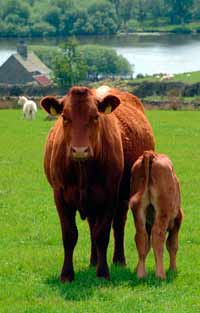Greenhouse gas strategy will see cows kept indoors

A radical strategy to cut greenhouse gas emissions could lead to the majority of cattle in Wales being housed, a report has concluded.
According to the major report released by the Welsh Assembly Government on 5 March, agriculture could make substantial progress to carbon neutrality by 2040.
The Land Use Climate Change Group, established by Wales’ rural affairs Minister Elin Jones to consider opportunities for farming and forestry businesses, recommends a series of initiatives balancing food production with cutting emissions.
In the short term, the report recommends the introduction of anaerobic digestion and more efficient use of manure, fertilisers and energy, the expansion of woodlands and the development of renewable energy sources.
The report’s emphasis is on maintaining intensive dairy, sheep and beef sectors while diversifying and increasing vegetable crops.
In the longer term, the report recommends development of a more radical approach where much of the cattle herd is housed to capture the methane.
Rural affairs minister, Elin Jones, said future land management will play a crucial role in cutting greenhouse gas emissions.
“Farming accounts for approx 10% of Wales’s greenhouse gas emissions. If we also consider food processing, retail and waste, this figure increases considerably,” she said.
Professor Gareth Wyn Jones, the Land Use Climate Change Group chairman, admitted the group had been faced with a major challenge.
But he believed that the recommendations would achieve a major cut in net emissions by “about 2040” and would contribute to the sustainability of rural Wales by generating additional income streams such as micro-renewable energy generation.
